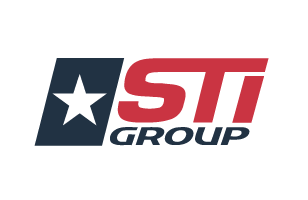Welding and industrial fabrication are crucial components in a wide range of industrial applications. It is imperative that the best welding process be used for any given project to ensure that the fabrication process meets all necessary quality levels, time constraints, and budgetary concerns. One highly effective welding process that is ideal for a range of different process is FCAW. Let’s take a closer look at FCAW and the role in plays in industrial fabrication.
Understanding the FCAW Welding Process
FCAW stands for Flux-Cored Arc Welding. The process can be automatic or semi-automatic. Although it is similar to MIG welding or stick welding, it uses a continuously-fed electrode. This keeps the weld uniform, because there is no need for frequent restarts during the process. Another benefit is that it lowers the possibilities of defects during the process. The core of the flux contains minerals and powdered metals that protect the quality of the weld by forming a protective slag while welding.
FCAW can be done with or without a shielding gas. The absence of a shielding gas is beneficial in outdoor environments where the wind might dissipate the shielding gas. When not using a shielding gas, the process is economical without a loss of weld quality. Meanwhile, performing FCAW with a shielding gas is a highly effective method of welding on thicker, structural steel welding. The shielding gas gives more quality and consistency, but must be done in a controlled environment. STI Group offers FCAW welding with a gas shielding to ensure the greatest quality weldments that will surpass conventional FCAW welding without shielding gas, also known as inner shield flux-cored self shielding welding wire.
Benefits of Using FCAW
There are many benefits to FCAW welding that makes it a popular and versatile option for industrial fabrication. Some of these benefits include the following:
- FCAW is suitable for both outdoor, onsite welding or shop welding.
- FCAW is relatively easy to learn.
- FCAW’s filler metal can be applied at a high deposition rate.
- FCAW yields consistent, high quality welds.
- FCAW typically produces very few defects.
- FCAW has excellent weld penetration.
- FCAW can be used when the base metal has contaminants, such as rust or scale.
- FCAW can be automated and highly productive, benefiting projects with a quick turnaround.
- FCAW allows for a simplified joint design.
Industrial Options for FCAW
Although FCAW does offer many advantages, it does have limitations. For instance, the process requires use of a well-ventilated area. It is not suited to all metal types. When making the switch to FCAW, some find that the equipment is costlier than other types of welding. However, the higher upfront cost is typically quickly offset by the many advantages of the process, including its overall productivity and efficiency. Another drawback of FCAW for some projects is that the equipment is not as portable as it is for other types of welding.
Thus, in some cases there may be another welding option that better fits the needs of a given project than FCAW. However, there are many variables which should be examined before making a final decision. When welding structural steel or iron alloys, FCAW has a high weld quality for industrial settings. When your project needs a quick turnaround, FCAW offers higher productivity.
STI Group offers a fully array of welding processes to ensure that our clients get the absolute best results for every project they do with us. We rigorously test our welds to ensure there are no defects per client specifications and national standards. Please contact us to discuss the specifics of your industrial fabrication project to determine if the FCAW can be a suitable alternative to conventional welding choices.

